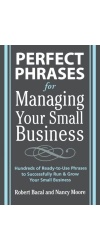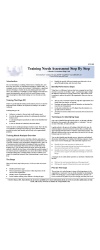Can Praise Be Condescending and Toxic? You Bet
It’s probably fair to say that all of us appreciate and need praise from others. Or positive feedback, whether emotionally based or task based (see The Uncommon Art of Giving and Receiving Feedback).
It’s not surprising if we end up thinking that all praise is a good thing, and dole it out either in true appreciation or an attempt to encourage people to do things we want them to do.
However, while praise is usually a good thing, it can turn toxic, depending on HOW it’s offered.
The Weird Thing About Both Praise and Criticism
Both praise and criticism share several presuppositions (unstated assumptions the “giver” holds that make it sensible to offer both)
- The giver is in a position to communicate a meaningful judgment about the receiver’s actions. That means being knowledgeable about the purpose and process of the receiver’s actions.
- The giver has the right to offer BOTH praise and criticism. After all, if the giver is in a position to praise he or she can also be in a position to criticize, since they are both of the same kind of communication.
- Judging another’s actions, or how s/he lives his or her life is a legitimate action and does not require permission from the receiver.
- The praise or criticism will be useful to the receiver, OR that it is OK to offer either out of one’s own sense (the giver’s sense) that s/he will be made better by offering the praise or criticism.
- In both cases, the giver controls the process of giving the feedback – praise OR criticism.
- For the most part these presuppositions are benign provided that the praise is not meant to manipulate or that the praise be offered up in a sincere desire to help the other person, or make him or her feel better.
But….there’s more
On Up, One Down Communication and Toxic Praise
“On Up, One Down” is a form of communication between two people where on person takes the “up” role (the superior role, the more knowledgeable, the more powerful, etc.), while the other person accepts the one down position, OR the one down position is inflicted upon him or her. The one up, one down communication style is about power in relationships, essentially, but it’s important here because the basis of it is the idea that one person is “better” than the other, and is communicating that.
Obviously harsh criticism, insults, and verbal violence, are one up one down. The speaker places himself (it’s often the male in a relationship) in the superior position, while at the same time demeaning the other person — putting her one down.
When Praise Is Toxic
Praise becomes toxic when the giver is using on up one down communication. Parents do this with children all the time, but it’s not TOXIC praise, because the child is clearly less able than the adult (at least in most things). And, of course, we know that children NEED the approval of their parents.
However, praise turns toxic when it used one up, one down communication, because it places one person above the other, and presupposes that other person is LESS THAN (Less than communication is another term similar to one up, one down.)
Typically, people may perceive this type of type of praise as condescending or patronizing, much like a pat on the head from someone more competent. HOWEVER, because, after all, praise is praise, many times the implications and what underlies the praise is lost on the receiver.
Some Real Examples Of Toxic Praise
(Sources protected and quotes modified to ensure anonymity)
Thank you, [person’s name], for reading and taking the time to think and comment. Welcome back from the Land of the Intellectually Somnambulant. Consider joining the [specific discussion group], where the conversations promise to be candid and lively.
There’s nothing really terrible about this online thank you note. Or is there. Consider:
The giver is using one up, one down communication, by presupposing that the receiver was in “the Land of the Intellectually Somnambulant” but praises the receiver for NOW waking up intellectually. That’s a straight up put-down. It’s judgmental, and it presupposes the giver is superior to the receiver, and is, therefore, entitled to judge whether the receiver is somnambulant.
Another example:
An astute observation, [name]. Could it be that this post by [another name] and this thread are not as interesting as “The Other” because this one deals promotes a moderate view and rationally discusses ideas and opinions, whereas “The Other” post proceeds by way of self-congratulatory frenzy of personal attack, defamatory innuendo, and character assassination, all under the guise of bringing a purported, though I submit thoroughly fabricated grievance to light?
This example is a little different from the first. The first sentence is a simple praise statement, but it presupposes that giver is competent to judge what is astute.
In and of itself it’s benign, even positive.
However, when coupled with the REST of the message, the meaning changes. Yes, the actual meaning of the phrase changes.
It becomes “See how I’m a great, reasonable fellow and recognize astuteness in you, but “those guys” are assholes, you know”. That’s the basis for the toxicity. It actually places “we”, giver and receiver, in opposition to those others, in effect, a put down of others not present, and attempting to elevate the two buddies.
Another Example
I am pleased that you feel you have looked inward, learned something about yourself, and now feel more at ease, if not entirely at peace. But I have to say that I think, perhaps, you misconstrue the nature of being nice, and probably of being supportive.
This one demonstrates how subtle toxic praise can be. First, the giver praises the fact that the recipient “feels”. she has looked inward. The salient part is the wording. There is no mention that the recipient REALLY demonstrated the processes mentioned, and the absence of that suggests the recipient “feels” it but may not be perceiving herself accurately.
The giver goes on, after the initial “praise” then goes on to suggest the receiver has got things wrong about what constitutes support and “being nice” and that the GIVER knows best. One up. One down.
These subtle wordings would probably be unnoticed by a casual reader. But they are examples of one up, one down manipulative speech.
The Bottom Line: Why This Is Important
When you communicate publicly to the same people who get to read many comments from you, readers (or listeners), will form an impression of you based on the totality of what you communicate, but more importantly, on HOW you communicate.
One up, one down communicators engender mistrust, and tend to attract anger, while at the same time being relatively oblivious to why people react so badly to what the communicate. They don’t understand why people react as IF the writer/speaker has insulted them explicitly.
In fact, they have insulted based on presupposition, and the HOW of their communication causes negative reactions. They can’t figure out why, for example, recipients of the examples above might say: “You are insulting my intelligence, or treating me as stupid”.
Note: Despite hunting, I could not find the originator of the one up – one down” distinction in communication.






